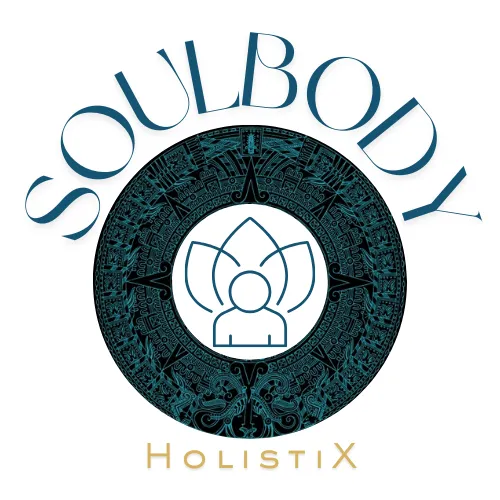Insights & Inspirations for Your Wellness Journey
From cultura to clinical wisdom—this is wellness that honors your roots and your rhythm. Get expert guidance, soul-aligned support, and real talk to help you feel energized, balanced, and fully you.

Inflammation Hits Different for Women—Here’s What You Can Do About It
You ever feel like your body is giving you the silent treatment—achy joints, bloated belly, cranky mood—and you’re like, “¿Qué está pasando aquí?” You’re eating the same as always, not doing anything that different, and yet...you feel off. That low-key, simmering type of inflammation might be trying to tell you something. And guess what? You’re not alone.
Chronic inflammation is everywhere these days, but here's the kicker: women are more susceptible than men. Yup. Just one more thing we can blame on hormones, societal expectations, and stress from trying to do all the things.
But don’t worry. I got you.
We’re gonna break this down—why inflammation shows up differently in mujeres, what sneaky culprits are triggering it (spoiler alert: it’s not just tortillas), and what you can actually do to start healing.

What Is Chronic Inflammation, Anyway?
Quick science moment (because you’re smart and deserve real answers): Inflammation is supposed to be a short-term immune response—like when you twist an ankle or catch a cold. But chronic inflammation? That’s when your body hits the panic button every day, even when there’s no actual emergency.
It’s like leaving the stove on low heat 24/7—eventually, something’s gonna burn. This kind of inflammation can mess with your tissues, organs, and systems over time, leading to conditions like:
Autoimmune diseases (hello, Hashimoto’s 👋)
Heart issues
Type 2 diabetes
Even certain cancers
And here’s the tea: it’s not just your genes. Lifestyle, baby. What we eat, how we sleep (or don’t), our stress levels, and how well our body detoxifies—all of that affects inflammation.
The Sneaky Culprits Behind Chronic Inflammation
1. Your Plate Might Be Throwing Shade
Sí, the food industry has done a great job making inflammatory foods super addictive and super available. Sneaky, sneaky, big food.
Refined sugar & processed carbs: Basically, the abuelita of inflammation. Spikes your insulin, crashes your energy.
Trans fats: Found in chips, pastries, fried stuff—bad for your heart, bad for inflammation.
Refined vegetable oils (soybean, corn, sunflower): Too many omega-6s without enough omega-3s = inflammation party.
Dairy & gluten: Not evil for everyone, but if your gut’s sensitive, they can be big triggers.
Alcohol: Especially for mujeres, too much alcohol = more oxidative stress + hormone disruption = más inflamación.
2. Sleep Deprivation Is Not a Flex
No, amiga, you’re not more productive running on 5 hours of sleep. You’re just inflamed. During sleep, your body repairs, balances hormones, and clears out junk. So if you’re skipping it? Your inflammation pathways go haywire.
Psst: Hormonal shifts (like perimenopause, pregnancy, PMS) can wreck sleep, making inflammation worse. So if you’re waking up at 3am wide-eyed like “¿Qué hora es?”—you’re not an insomniac, it’s biology.
3. Poor Detox = Internal Traffic Jam
Your liver, kidneys, gut, and lymphatic system are supposed to filter out the basura. But if they’re overwhelmed—by pesticides, toxic beauty products (yes, even the “clean” ones), or gut issues—then toxins build up. And you guessed it: inflammation kicks in.
Fun fact: If you’re not pooping daily, your detox game is not on point.
4. Chronic Stress (aka The Inflammation Accelerator)
That never-ending to-do list? The family drama? The 24/7 grind? Chronic stress pumps out cortisol like your body’s running from a tiger—but you’re just trying to do laundry or sit in traffic.
Too much cortisol for too long = immune dysfunction, gut imbalance, sleep issues, and yep...more inflammation.
Why Does Inflammation Hit Women Harder?
Okay, this is where it gets really interesting.
1. Hormones: The Good, The Bad & The Moody
Estrogen can be anti-inflammatory, but when it swings (like during your cycle, pregnancy, or menopause), it can also stir up inflammation. Ever notice your joints hurt more before your period or post-baby? Not just your imagination.
Menopause especially? Whew. The drop in estrogen can crank up inflammation, leading to things like weight gain, joint pain, hot flashes, etc.
2. Autoimmunity Loves Women (Unfortunately)
Diseases like lupus, Hashimoto’s, and rheumatoid arthritis are way more common in women. Our immune systems are stronger (yay!), but also more prone to going rogue and attacking our own tissues (boo). It’s a double-edged sword.
3. Genetic Factors
Some of us were simply born with a more inflammation-prone setup. Women tend to produce more cytokines (those inflammation messengers), which means we’re more likely to flare up when things get out of balance.
4. Lifestyle Stressors & Environmental Junk
Between caregiving, working, and holding down el rancho...women are under a lot of pressure. Add in poor diet, mold exposure (yup, mold can be a big trigger), lack of sleep, and voilà—chronic inflammation.
Okay, So What Can We Do About It?
Good news: inflammation isn’t a life sentence. You can shift it. You GET to take control.
Here’s how to start:
1. Eat for Calm, Not Chaos
Focus on foods that tell your body: “Hey, we’re safe. We can chill now.”
Omega-3s: Fatty fish, flax, chia, walnuts.
Colorful veggies & fruits: Antioxidants galore, especially berries, leafy greens, tomatoes.
Turmeric & ginger: Nature’s anti-inflammatory dream team.
Whole grains: Oats, quinoa, brown rice (not white bread, sorry boo).
Healthy fats: Avocados, olive oil, almonds. Frijoles and salsa are a YES.
2. Consider These Anti-Inflammatory Supplements
Sometimes, food needs a little backup. Some people have benefited from:
Curcumin (from turmeric): Powerful inflammation fighter.
Fish oil: Omega-3s to the rescue.
Vitamin D: Low levels = more inflammation. Get tested.
Probiotics: For gut love and immune balance.
Magnesium: For muscle tension, sleep, and inflammation.
Boswellia: For joint pain, especially during hormonal shifts.
3. Reset Your Lifestyle, Bit by Bit
No, you don’t have to become a yoga goddess overnight. Start small.
Stress management: Breathwork, journaling, dancing in your kitchen—whatever helps you drop out of fight-or-flight.
Movement: Walks, strength training, stretching... do what you can. Not what Instagram says.
Sleep like it’s your side hustle: Count the hours you slept and take the average. Aim for 7–9. That’s your sweet spot.
Should You Get Tested?
If you feel like something’s off, trust your gut. Testing can help clarify the why behind your symptoms.
Ask your practitioner about:
CRP (C-Reactive Protein): Measures general inflammation.
ESR (Erythrocyte Sedimentation Rate): Slower = better.
Autoimmune panels: Especially if fatigue, hair loss, or brain fog are showing up uninvited.
Final Word: You’re Not “Just Tired” or “Too Sensitive”
Chronic inflammation isn’t all in your head. It’s in your gut, your hormones, your nervous system—your whole being.
But here’s the beautiful thing: your body wants to heal. It just needs the right support. And tú puedes.
If you’re tired of guessing and ready to feel like yourself again—clear-headed, pain-free, calm—I invite you to take the next step.
✨ Schedule a free consult HERE and let’s create a personalized, culturally-sensitive healing plan that works for you. No shame, no guilt—just deep healing from the inside out.
Dr. Alma
Pharmacist. Functional & Holistic Health Coach. Your Wellness Comadre.


